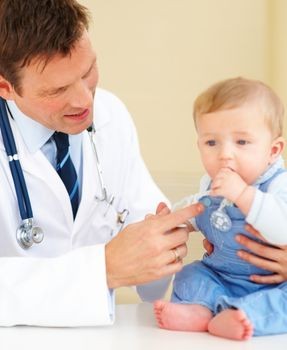Gastroesophageal Reflux: Breastfeeding reduces the disorder
This is a temporary and benign disorder, but that, according to doctors, may affect half of infants. A disorder that appears in the first months of life and that, after 12 months, usually begins to subside.
GERD can be caused by various reasons, such as prematurity, certain respiratory diseases, obesity and some neurological disorders. Breastfeeding, once again, can be a good ally to reduce their prevalence and symptoms.
It is estimated, according to doctors, that this is a disorder sufferers half of infants in the first months, but can also occur in older children.
Gastroesophageal Reflux
Gastroesophageal reflux is considered a benign, transient and typical of childhood disorder. Its prevalence, and endorse the numbers, makes it one of the main reasons for consultation by the parents at the consultations of the pediatrician.
Gastroesophageal reflux, in medical terms, is defined as the response to the immaturity that has digestive and disorder in performance during the first months of the baby (the sphincter, responsible for opening and shutting out food). It is the involuntary return of gastric contents into the mouth.
A very common digestive disorder, although it may vary in intensity and can cause vomiting (one of the most common symptoms after feedings), acidity or mouthfuls of milk. Other symptoms that can alert that the baby is suffering from gastroesophageal reflux are the sleep difficulties, shown more irritable and cry more often, even, refuses to eat. Reflux can lead to weight loss or stagnation in growth.
Check Also: Voice Disorders: What are the most common?
Causes of gastroesophageal reflux
There are several causes for gastroesophageal reflux. Among these causes, prematurity, but also obesity, respiratory problems or neurological disorders.
At this point, breastfeeding, considered not only the ideal food but perfect vaccine for the newborn, can also be an interesting ally, because as experts say can help reduce this disorder.
Obesity is a risk factor for occurrence of gastroesophageal reflux in older children. In these cases, diet also plays a key role; it is advisable that it is low in fat, spicy foods and chocolate.
For babies, experts suggest a few tips to control and prevent symptoms, such as placing the child avoid certain positions (semi-sitting or lying on his left side, in the latter case, only if he awake and accompanied).
There is a need to monitor the baby’s symptoms, preventing them from swallowing excessive amounts of milk in each one of them. If we introduce any changes in the diet of children we must consult a pediatrician.
Once diagnosed the reflux, and following the pediatric advice, the goal is to ensure quality life. The diagnosis is important not only to control the disorder, but because in some cases it may reveal other diseases or symptoms overlap other health problems such as allergies or intolerance to cow’s milk protein.
